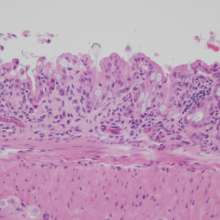Background note on targeted cancer therapies:
The new generation of cancer drugs
Targeted cancer therapies are drugs or other substances that block the growth and spread of cancer by interfering with specific molecules involved in tumor growth and progression. They are the new generation of cancer drugs.
By focusing on molecular and cellular changes that are specific to cancer, targeted cancer therapies may be more effective than other types of treatment, including chemotherapy and radiotherapy, with less harmful to normal cells. These therapies are used alone, in combination with other targeted therapies, and in combination with other cancer treatments such as chemotherapy.
In America, many targeted cancer therapies have been approved by the US Food and Drug Administration (FDA) for the treatment of specific types of cancer. Others are being studied in clinical trials (research studies with people), and many more are in preclinical testing (research studies with animals).
How do they work
According to the National Cancer Institute at the US National Institutes of Health, targeted cancer therapies already approved for use include drugs that
- interfere with cell growth signaling
- interfere with tumor blood vessel development
- promote the death of specific cancer cells
- stimulate the immune system to destroy specific cancer cells
- deliver toxic drugs to cancer cells
Targeted therapies interfere with cancer cell division (proliferation) and spread in different ways. Many of them focus on proteins that are involved in cell signaling pathways, which form a complex communication system governing basic cellular functions and activities such as cell division, cell movement, cell responses to specific external stimuli, and cell death.
By blocking signals that direct cancer cells to grow and divide uncontrollably, some targeted cancer therapies induce cancer cell death through a process known as apoptosis to stop cancer growth. Other targeted therapies can cause cancer cell death by specifically inducing apoptosis directly, and/or by delivering toxic substances to the cancer cells directly, or indirectly, by stimulating the immune system to recognize and destroy cancer cells.
Most targeted therapies are either small-molecule drugs or monoclonal antibodies. Small-molecule drugs are typically able to diffuse into cells to act on targets inside the cell. Most monoclonal antibodies cannot penetrate the cell’s plasma membrane and are directed against targets outside cells or on the cell surface.
Nutlin-3 - a small molecule targeted cancer drug
Probably, the most well known small-molecule drug, which can pass through cell wall to reach targets inside the cell, is Gleevec (Imatinib mesylate). It is approved for treatment of chronic myelogenous leukemia and some other specific cancers (1). One small-molecule drug being studied, which target specific proteins is the small molecule inhibitor, Nutlin-3, a molecule that can bind to and inhibit the function of MDM2 (2).
The reason to inhibit the function of the MDM2 protein is because some cancers have very high levels of MDM2. These high levels inhibit the activation of a key protein involved in cell death, p53, the guardian of the genome. MDM2 promotes the rapid degradation of the p53 protein thus inhibiting cell death (3).
Interestingly, it has been shown that p53 is inactivated in almost all cancers, either via mutations or inhibited by upstream proteins including MDM2 (4). When p53 is activated, the cells quickly activate programmed cell death, apoptosis.
Cancer researchers are actively looking for treatments to induce apoptosis, but only in the cancer cells, not in other organs and tissues. Nutlin-3 has been shown in many studies that it does not induce apoptosis in normal cells (5). However, some other studies have shown that this drug could negatively affect differentiation of certain cell types, including muscle differentiation (6). It is, therefore, very important to understand these side effects especially for long-term treatment.




